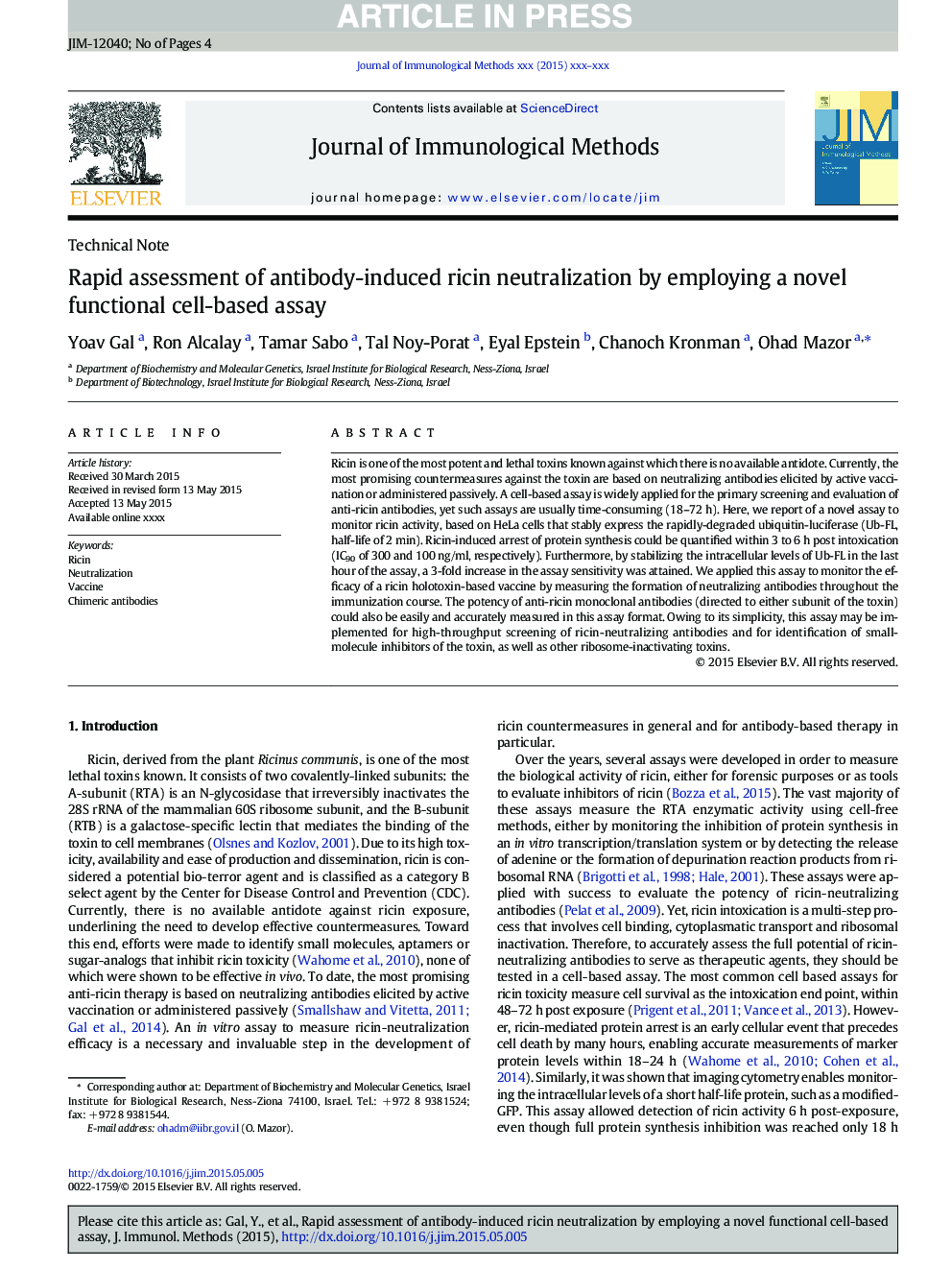| Article ID | Journal | Published Year | Pages | File Type |
|---|---|---|---|---|
| 8417450 | Journal of Immunological Methods | 2015 | 4 Pages |
Abstract
Ricin is one of the most potent and lethal toxins known against which there is no available antidote. Currently, the most promising countermeasures against the toxin are based on neutralizing antibodies elicited by active vaccination or administered passively. A cell-based assay is widely applied for the primary screening and evaluation of anti-ricin antibodies, yet such assays are usually time-consuming (18-72Â h). Here, we report of a novel assay to monitor ricin activity, based on HeLa cells that stably express the rapidly-degraded ubiquitin-luciferase (Ub-FL, half-life of 2Â min). Ricin-induced arrest of protein synthesis could be quantified within 3 to 6Â h post intoxication (IC90 of 300 and 100Â ng/ml, respectively). Furthermore, by stabilizing the intracellular levels of Ub-FL in the last hour of the assay, a 3-fold increase in the assay sensitivity was attained. We applied this assay to monitor the efficacy of a ricin holotoxin-based vaccine by measuring the formation of neutralizing antibodies throughout the immunization course. The potency of anti-ricin monoclonal antibodies (directed to either subunit of the toxin) could also be easily and accurately measured in this assay format. Owing to its simplicity, this assay may be implemented for high-throughput screening of ricin-neutralizing antibodies and for identification of small-molecule inhibitors of the toxin, as well as other ribosome-inactivating toxins.
Related Topics
Life Sciences
Biochemistry, Genetics and Molecular Biology
Biotechnology
Authors
Yoav Gal, Ron Alcalay, Tamar Sabo, Tal Noy-Porat, Eyal Epstein, Chanoch Kronman, Ohad Mazor,
